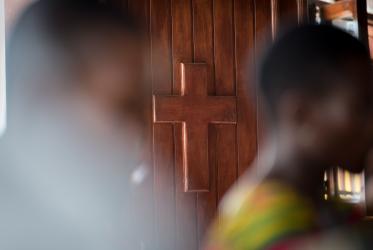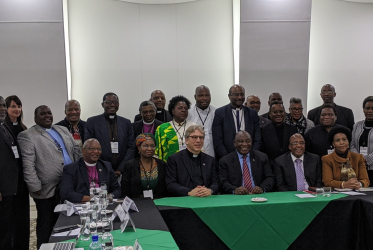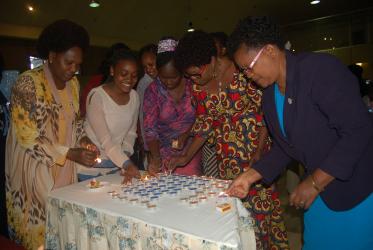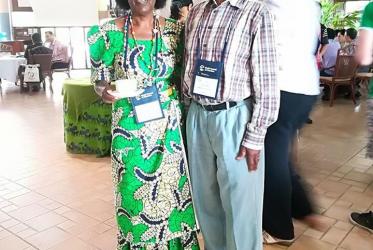Displaying 101 - 120 of 366
Young Africans are eager to grapple with challenges
09 January 2020
South Africans draw hope despite recurring challenges
16 December 2019
WCC delegation meets with South African President Ramaphosa
09 December 2019
WCC mourns passing of Prof. Vuyani Vellem
09 December 2019
South Sudan Council of Churches: peace “is a question of the heart”
11 November 2019
Youth leaders: “We will stop at nothing” to end HIV and violence
17 October 2019
Churches in southern Africa stand against violence, xenophobia
10 October 2019
Kenya mourns the late Prof. Samuel John Mbiti
08 October 2019
Rev. Damon Mkandawire: “A man is a gender justice champion”
03 October 2019
Ethiopians celebrate Meskel festival
01 October 2019
African religious leaders express new concerns over South Sudan peace
19 September 2019
Kenya schools invest in young people to end new HIV infections
18 September 2019















